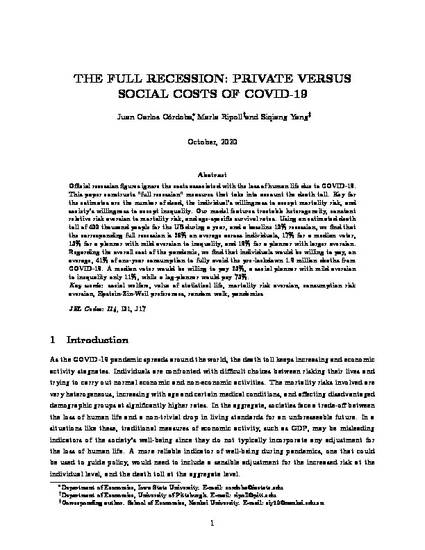
Official recession figures ignore the costs associated with the loss of human life due to COVID-19. This paper constructs "full recession" measures that take into account the death toll. Key for the estimates are the number of dead, the individual's willingness to accept mortality risk, and society's willingness to accept inequality. Our model features tractable heterogeneity, constant relative risk aversion to mortality risk, and age-specific survival rates. Using an estimated death toll of 400 thousand people for the US during a year, and a baseline 10% recession, we find that the corresponding full recession is 26% on average across individuals, 17% for a median voter, 13% for a planner with mild aversion to inequality, and 19% for a planner with larger aversion. Regarding the overall cost of the pandemic, we find that individuals would be willing to pay, on average, 41% of one-year consumption to fully avoid the pre-lockdown 1.9 million deaths from COVID-19. A median voter would be willing to pay 23%, a social planner with mild aversion to inequality only 11%, while a log-planner would pay 73%.
Original Release Date: October 28, 2020
Available at: http://works.bepress.com/juancarlos-cordoba/19/
